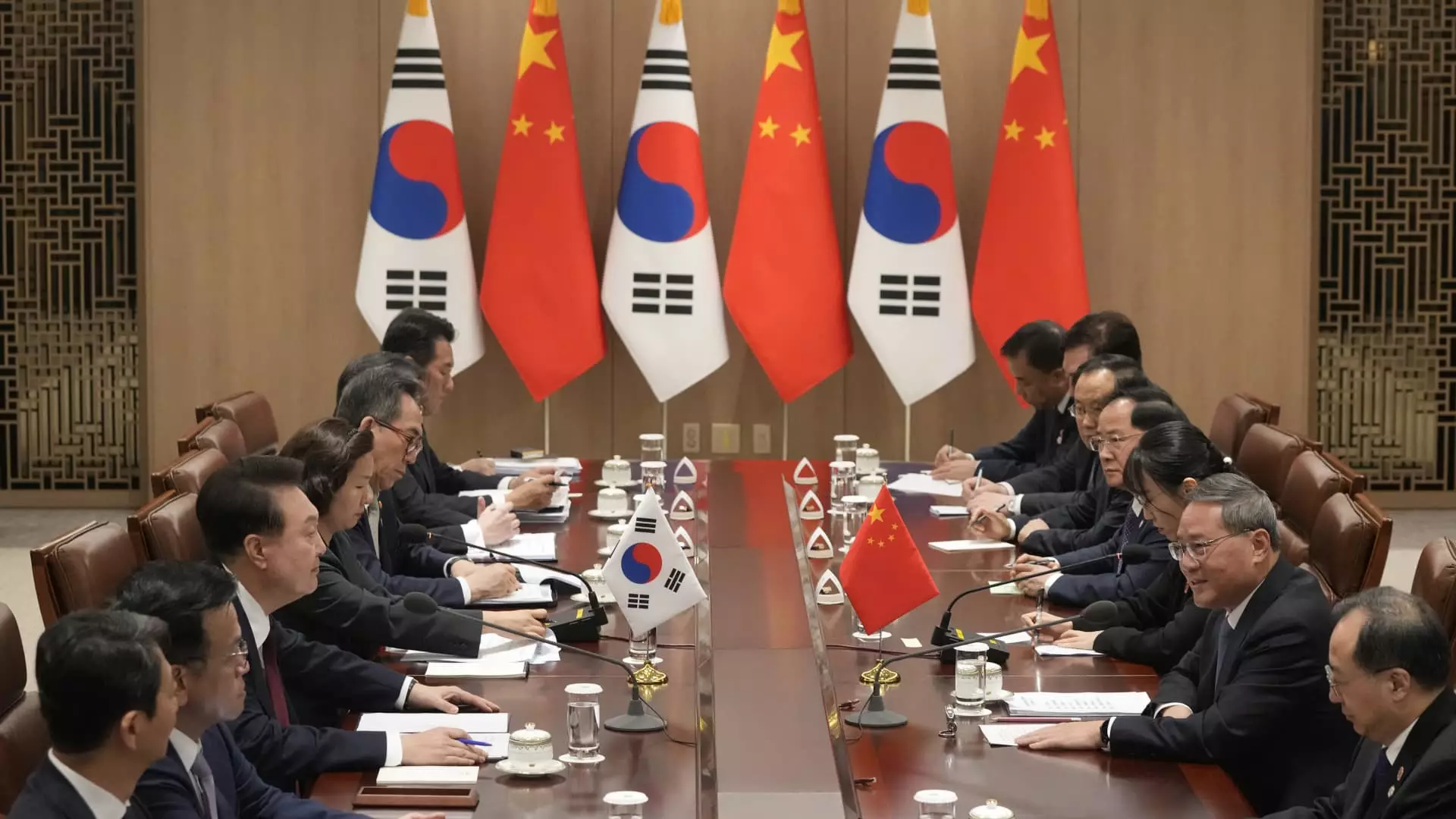During the recent trilateral summit in Seoul, Chinese Premier Li Qiang urged Japan and South Korea to reject “protectionism” and uphold free trade. He emphasized the importance of not turning economic and trade issues into “political games or security matters” and instead focusing on cooperation and development among the three countries.
Li highlighted the need for China, Japan, and South Korea to view each other as partners and opportunities for development. This sentiment was echoed in a joint statement released after the summit, where the leaders agreed to institutionalize three-way cooperation through regular trilateral summits and ministerial meetings.
In addition to strengthening cooperation, the leaders also agreed to continue talks for expediting negotiations on a free trade agreement. The aim is to establish a fair, comprehensive, high-quality, and mutually beneficial agreement that will promote economic growth and trade between the three nations.
The summit took place against the backdrop of regional security concerns, particularly in light of North Korea’s nuclear and missile threats. The leaders jointly called for the denuclearization of the Korean Peninsula and expressed their commitment to finding a political settlement to the issue.
On the economic front, the countries emphasized the importance of ensuring a transparent and level playing field for trade and investment. Despite geopolitical tensions, China remains a significant market for both Japan and South Korea, making it challenging for them to ignore the economic opportunities that China presents.
The summit also reflected the broader geostrategic dynamics at play in the region, with China seeking to assert its influence and leverage in East Asia. The United States’ initiatives in the region, particularly its cooperation with South Korea and Japan, have prompted China to try and drive a wedge between the two countries and the U.S.
Despite the security challenges and geopolitical complexities, both China and Japan expressed a desire to maintain stable relationships. The leaders emphasized the importance of an unimpeded supply chain and safeguarding the global free trade system, recognizing the interconnectedness of their economies.
The trilateral summit between China, Japan, and South Korea highlighted the complexities of balancing economic cooperation with geopolitical tensions in East Asia. The call for upholding free trade and fostering closer ties underscores the interconnected nature of the region and the importance of finding common ground for mutual benefit. As the three countries navigate the changing geopolitical landscape, maintaining open communication and cooperation will be crucial for promoting stability and prosperity in the region.



Leave a Reply